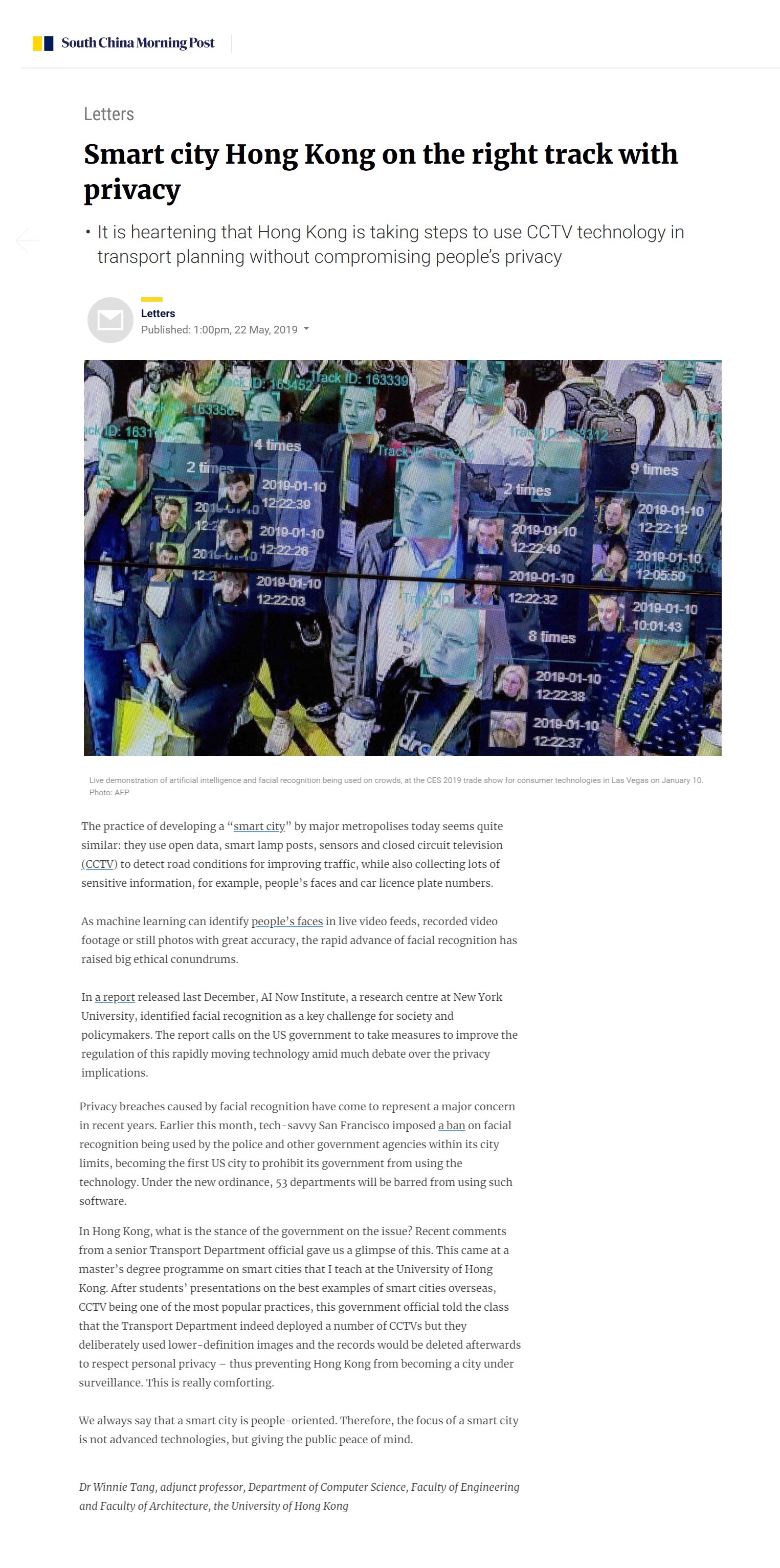網上版請按此

Smart city Hong Kong on the right track with privacy
It is heartening that Hong Kong is taking steps to use CCTV technology in transport planning without compromising people's privacy
The practice of developing a "smart city" by major metropolises today seems quite similar: they use open data, smart lamp posts, sensors and closed circuit television (CCTV) to detect road conditions for improving traffic, while also collecting lots of sensitive information, for example, people's faces and car licence plate numbers.
As machine learning can identify people's faces in live video feeds, recorded video footage or still photos with great accuracy, the rapid advance of facial recognition has raised big ethical conundrums.
In a report released last December, AI Now Institute, a research centre at New York University, identified facial recognition as a key challenge for society and policymakers. The report calls on the US government to take measures to improve the regulation of this rapidly moving technology amid much debate over the privacy implications.
Privacy breaches caused by facial recognition have come to represent a major concern in recent years. Earlier this month, tech-savvy San Francisco imposed a ban on facial recognition being used by the police and other government agencies within its city limits, becoming the first US city to prohibit its government from using the technology. Under the new ordinance, 53 departments will be barred from using such software.
In Hong Kong, what is the stance of the government on the issue? Recent comments from a senior Transport Department official gave us a glimpse of this. This came at a master's degree programme on smart cities that I teach at the University of Hong Kong. After students' presentations on the best examples of smart cities overseas, CCTV being one of the most popular practices, this government official told the class that the Transport Department indeed deployed a number of CCTVs but they deliberately used lower-definition images and the records would be deleted afterwards to respect personal privacy – thus preventing Hong Kong from becoming a city under surveillance. This is really comforting.
We always say that a smart city is people-oriented. Therefore, the focus of a smart city is not advanced technologies, but giving the public peace of mind.
Dr. Winnie Tang
Adjunct Professor, Department of Computer Science, Faculty of Engineering and Faculty of Architecture, The University of Hong Kong